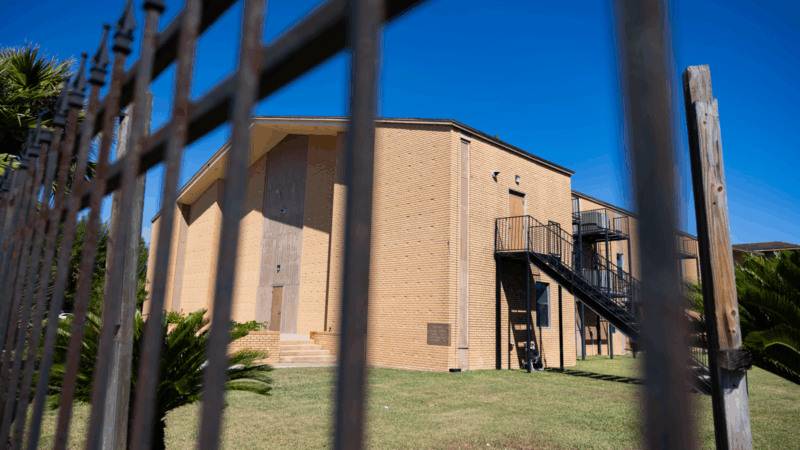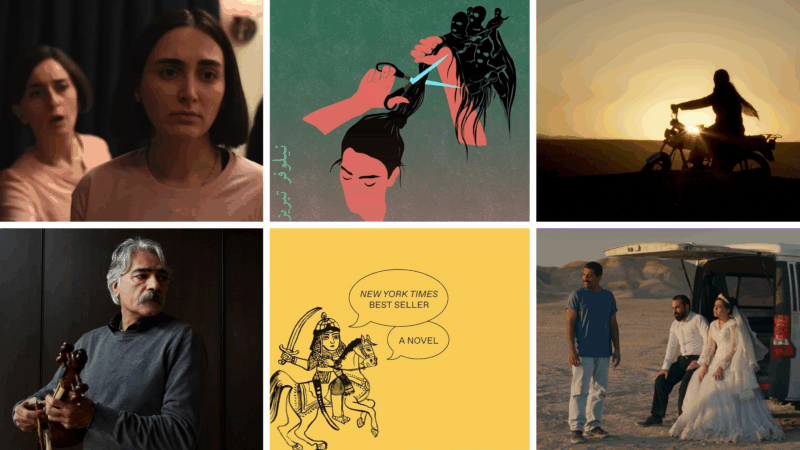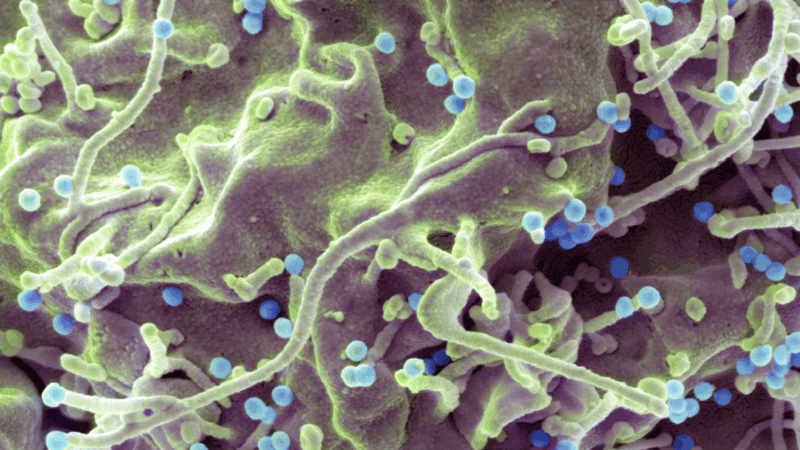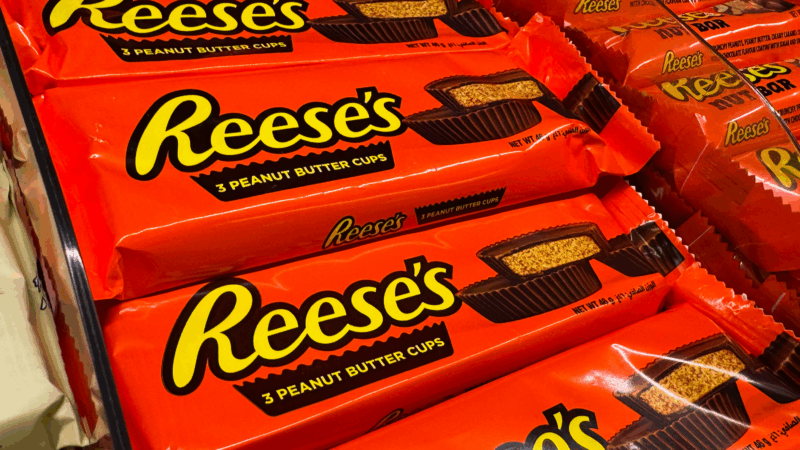Rosemary’s German Weblog
Dresden — So, long time since last we spoke. Sorry about that, the RIAS folks have been keeping us busy over here. Last Sunday we went to Brussels, Tuesday we were in Hamburg and Thursday arrived in Dresden. Planes, trains and automobiles … I’m sick of them all. I’m going to try to give a rough summary of the things we’ve done over the last week or so.
Last Saturday we traveled to Potsdam, just outside Berlin. It is a lovely place. On the way there we stopped at a beautiful villa on a lake. The garden was in full bloom, the breeze was nice and the sun was shining. It felt wrong, being there on such a lovely day. It was the house where the Nazis decided on their “Final Solution” to the “Jewish problem”. To be in that building and to know what was decided there, it was overwhelming.
Another building near Potsdam that was overwhelming, for entirely different reasons, was the hunting mansion of the Prussian kings. It was a nice large estate. But inside those walls Germany’s fate was decided. It was there that Stalin, Truman and Churchill decided how to divide Germany. Also what it would pay in restitution for what it had done during World War II. Strange to see old “Uncle Joe” staring down at you from photos. We later went to the palace of San Soucci, modeled after Versailles.
Sunday brought Brussels and the Grand Place. We had to hike down, and back up, a large hill to get there, but boy was it worth it. The Grand Place is a wonder of architecture, some of it looking gothic, some of it looking a little later but all dazzling. Brussels also brought meetings with folks working for the European Commission and NATO.
Hamburg was quite a city. Not far from the North Sea we got a lot of daylight. Sun rising about five — still light around eleven at night. Talk about disorienting. The big trip there was to the Airbus factory where they’re building parts of the A380 — the monster jumbo jet Airbus hopes will replace Boeing’s 747. Supposedly Airbus is looking to locate a new plant here in the states and Alabama could be one of the contenders for the plant. You’d better believe I’ll be on top of that one.
Then there’s Dresden. The “Florence on the Elbe”. It was stunning. One of the most beautiful places I’ve ever been, even with all the construction work taking place. The part of the city that sits along the river is full of Baroque buildings, many of which are built of sandstone. We actually went up into the Frauenkirche — a church that was once the heart of the city. It was destroyed by fire after the Allies firebombed Dresden. The Communists left the ruins standing as a reminder of the horrors of war. When Germany’s two selves were unified in 1990 work began to rebuild the Frauenkirche. Work on the outside is complete; the inside should be done next year.
So that’s it, the quick and dirty overview of the last week of my trip. It has been an educational, riveting and sometimes overwhelming two weeks — the trip of a lifetime, truly. Make sure to check the site again in a couple of days, I should have photos up by the end of the week.
Friday, June 17, 2005
Berlin — Wow, what a week it’s been! I’ve been to the Reichstag (seat of German Parliament), a neighborhood with a large Turkish population and to the opera! (It was Beethoven’s “Fidelio”; first act wasn’t so great, the second was fantastic.) I’m wiped out!
I think today was one of my favorite days here. We spent the afternoon at the Reichstag talking with members of the different parties (there are four major ones; the Greens, the Social Democrats, the Christian Democrats and the Free Democratic Party). The parliament system of government is really fascinating and intricate. The government’s ability to function is closely tied with the ruling party’s coalition building skills. It’s all about teamwork here, folks.
The Reichstag building itself is really cool. (Does that sound juvenile?) The facade is the original dating from the late 1800’s but inside it’s like you’ve stepped into the 21st Century and then some. The building is full of glass walls, the idea being that democracy should be transparent — I guess the German’s took that literally. It is about as different a building from the U.S. Congress as tofu is from turkey. But, like Congress, it is topped by a dome … only this one is all glass. We climbed up to the top and let me tell you the view is amazing! (I wish I could share pictures right now … but don’t worry, there will be photos when I come back!)
Inside the building is all modern but there are places where the past peeks through. My favorite spot was one of the original limestone walls. Scrawled all over it was graffiti left behind by Russian soldiers at the end of WWII. Our tour guide told us they decided to leave some of the graffiti on certain walls as a reminder of their dark past.
That’s the thing about this city (and something I’ve mentioned a few times) it doesn’t attempt to forget its past. The Germans have embraced their heritage, the good and bad, because they know it’s important to not forget what has come before. There are memorials all over this place to make sure Germans, and tourists, never forget.
Tomorrow we travel to Potsdam to visit a palace build by Fredrick the Great during the Prussian Empire’s rule. The structure is modeled after Versailles outside Paris so it should be an interesting trip, as long as it doesn’t rain. Then in the evening we head to a real live cabaret. Sunday it’s off to Brussels to meet with NATO and EU officials. The next time you hear from me I’ll probably be full of delicious Belgian chocolate.
Mmmmm, I can’t wait.
Monday, June 13, 2005
Berlin — Have you ever had a panic attack? I had a doozie of one today. (Which doesn’t happen all that often for me, by the way.) We started the day with a history lesson from a German journalist who is an expert in the West-East divide in Germany. I think in the States we have this idea that reunification happened and that’s it, deal done. That’s not quite how it worked out. When the Wall fell West Germany’s economy, political system, it’s entire way of life, was foisted upon East Germany. The West has pumped billions upon billions of Euros into the East and yet that part of the nation is very poor with an unemployment rate of 18%. Trying to make the two halves one whole is turning out to be quite difficult, but it wasn’t economics that caused me to have a panic attack, it was something much more malevolent.
After our breakfast meeting with the journalist we traveled, by bus, to this walled enclosure in the east of Berlin — the former central Stasi prison. The Stasi were the secret police in the GDR, or German Democratic Republic (East Germany). There were 90-thousand secret police, with another 180-thousand “informants” or spies. These informants could be your boss, your neighbor, your husband. The idea was to create mutual distrust … the only way a dictatorship can function is if the people are constantly scared of something.
A former Stasi victim gave us a tour of the prison and it was chilling. During the Nazi era the enclosure was the headquarters of a catering company. The Russians, during their tenure ruling the east after WWII turned it into a prison which the GDR and Stasi inherited.
I don’t really have words to explain the experience. Claustrophobic, chilling, depressing. Those words come close to but don’t quite do justice to the place or the stories this former prisoner told us. As prisoners were led into the building they were beaten as they walked down the stairs — the Stasi beat the hope, the optimism, out of their victims early so they wouldn’t have to beat them later.
The Stasi practiced a form of sensory depravation and isolation. Prisoners could not talk to other prisoners. In the early years they were locked in small rooms underground (nicknamed the U-Boot or submarine by prisoners) with no natural light, no contact with the outside world. Stasi victims couldn’t even be sure if they were still in Germany. Our tour guide told us being in that situation made you look forward to your next interrogation — it was the only human contact you ever got. He was in the Stasi prison for seven years; charged at first with being a spy, later with threatening peace.
We grow up hearing the stories of Communism, hearing stories of what life is like under a police state but I don’t think we can really comprehend what it is like. To worry that your loved one could be spying, to not be able to breathe air without wondering if you were being watched. We walked into one of the cells, similar to one our guide was housed in for ten months and I almost freaked out. Eleven of the thirteen of us crammed into the room and I couldn’t do it; I couldn’t be in that tight space or I was going to pass out. It took me the rest of the afternoon to shake that feeling off. And I was only in the room for not even ten minutes, to have been a prisoner for years, I don’t think I could’ve made it. Our tour guide was certainly made of strong stuff.
Tonight we have a reception at a very swanky hotel; it’s being thrown in our honor by the American Embassy, so I’m looking forward to that. Oh, my blind date went wonderfully. I dined with a public radio journalist here in Berlin. She made me traditional dishes and we talked about all kinds of things, it was a nice evening.
Auf Weidersehen!
Sunday, June 12, 2005
I’M SORRY THIS IS IN CAPS … I SOMEHOW TURNED ON CAPS AND DON’T KNOW HOW TO TURN IT OFF!
BERLIN — SO, HERE I AM, THOUSANDS OF MILES FROM HOME AND WHERE AM I? IN A DUNKIN’ DONUTS! I NEEDED TO FIND AN INTERNET CAFE AND THERE’S ONE HERE. WHY DON’T THEY DO THIS IN THE STATES?
THE FIRST FEW DAYS OF MY TRIP HAVE BEEN FUN, EDUCATIONAL AND COLD. IT’S IN THE UPPER 50’S, LOWER 60’S. NEVER DID I THINK I WOULD BE DREAMING OF STEAMY ALABAMA DAYS AND NIGHTS. BUT, LUCKILY, TODAY WE ESCAPED THE COLD FOR A BIT BY TAKING A BUS TOUR OF THE CITY. AND, AS ONE OF MY FELLOW FELLOWS SAYS, WHEN THE CITY WAS DIVIDED, THE COMMIES GOT ALLTHE GOOD STUFF!
THIS CITY IS REALLY A STUDY IN CONTRASTS; ARCHITECTURALY AND CULTURALLY. OUR TOUR TOOK US TO THE BRANDENBURG GATE, the SYMBOL OF BERLIN FOR YEARS. WHEN THE NATION WAS STILL SPLIT IN TWO THE GATE SAT IN THE MIDDLE OF THE TWO WALLS, AND YES, THERE WERE TWO WALLS THAT DIVIDED THE CITY — A FACT I DID NOT KNOW UNTIL COMING HERE. THERE WAS A HUGE NOMAN’S LAND BETWEEN THE TWO WALLS — IN ITS PLACE NOW IS A BUSY, THRIVING AREA SURROUNDING THE BRANDENBURG GATE. RIGHT NEXT TO THE HISTORIC ENTRANCE TO BERLIN WILL BE BUILT THE NEW AMERICAN EMBASSY. (OFFICIALLY THERE IS NO U.S. AMBASSADOR AS OF RIGHT NOW.) OTHER PARTS OF THE NOMAN’S LAND ARE DOMINATED BY NEW BUILDINGS, ONE OF WHICH I AM SITTING IN RIGHT NOW. I FIND IT STRANGE THAT IN TEN YEARS THIS ONCE EMPTY SPACE HAS BEGUN TO BUZZ WITH LIFE AND BUSINESS.
ALSO TODAY OUR TOUR GUIDE TOOK US TO SEE THE NEW HOLOCAUST MEMORIAL. IT’S BEEN AT THE CENTER OF SOME CONTROVERSY HERE. THE JEWISH COMMUNITY WASN’T TOTALLY HAPPY WITH IT AND MANY GERMANS WEREN’T HAPPY WITH IT SOME DIDN’T LIKE THAT IT MEMORIALIZES ONLY JEWISH VICTIMS OF THE HOLOCAUST — SAYING JEWS WERE AGAIN BEING SINGLED OUT AS A GROUP. THE MEMORIAL IS LARGE AND UNAVOIDABLE. IT’S BASICALLY A SERIES OF LARGE CEMENT RECTANGLES LAID OUT AT VARYING HEIGHTS; YOU GET THIS FEELING OF WALKING THROUGH A FOREST OF CONCRETE. IT IS A GREY, SOBERING PLACE. IT VERY MUCH FEELS LIKE A JEWISH CEMETARY, WHICH I BELIEVE WAS THE IDEA. I PLAN TO GO BACK AGAIN, ALONE THIS TIME.
EVERYWHERE YOU LOOK IN THIS CITY YOU SEE BEAUTIFUL, OLD EUROPEAN BUILDINGS SITTING NEXT TO MORE MODERN STRUCTURES. THIS IS ESPECIALLY STRIKING IN THE EAST, WHERE PRE-FAB, SOVIET-STYLE APARTMENT HOMES RESIDE NEXT TO THE OLDER STRUCTURES. BERLIN, IN THE LATE 1800’S WAS THE HOME OF THE RULERS OF THE PRUSSIAN EMPIRE. IT WAS THEIR CAPITAL AND THE BRANDENBURG GATE WAS HOW ALL VISITORS ENTERED THE CITY. STRANGE THAT IT IS NOW A DIVIDER OF THE CITY.
DON’T BE FOOLED, JUST BECAUSE THE CITY, AND THE NATION, HAS BEEN MADE WHOLE GEOPOLITICALLY; EMOTIONALLY AND MENTALLY, THIS IS STILL A DIVIDED PLACE. IT’S A NATION THAT IS TRYING TO FORGE A COHESIVE COUNTRY OUT OF TWO DIAMETRICALLY OPPOSED WAYS OF THINKING — COMMUNISM AND CAPITALISM. REALLY, THIS PLACE IS JUST FASCINATING.
OH, AND EARLIER I MENTIONED MY FELLOW FELLOW’S COMMENT ABOUT THE EAST GETTING ALL THE GOOD STUFF — HE WAS TALKING ABOUT THE ARCHITECTURE AND PARKS. AND IT’S TRUE. THE SAD THING IS THE COMMUNIST GOVERNMENT IN THE EAST TORE DOWN A LOT OF THE REALLY LOVELY THINGS IN THE 50’S — AMONG THEM THE PRUSSIAN EMPEROR’S PALACE. IN IT’S PLACE THEY BUILT A VERY STRAIGHT EDGE BUILDING TO HOUSE THEIR GOVERNMENT — IT’S GOING TO BE TORN DOWN LATER THIS YEAR. WHAT’S GOING UP IN ITS PLACE? WHY A REPLICA, ON THE OUTSIDE ANYWAY, OF THE PALACE THE COMMUNISTS TORE DOWN. HOW APROPOS.
TONIGHT I HAVE A BLIND DATE WITH A GERMAN JOURNALIST AND TOMORROW ITS OFF TO THE FORMER STASI (EAST GERMAN SECRET POLICE) PRISON. HOPEFULLY IT’LL BE A LITTLE WARMER.
Friday, June 10, 2005
Ich spreche kein Deutsch; in English, ‘I speak no German’. It is a phrase I have mastered over the last few weeks, really the only German phrase I have mastered. Try as I might my tongue just doesn’t want to wrap around the sounds of that language.
So, I leave today and I’m nervous. Never thought I’d admit that, but I am. Getting on a plane isn’t as easy as it once was for me, thanks to the joy of motherhood. Also, this isn’t just a trip to play around; I?m going to be meeting some powerful people in German culture and politics. People who are shaping the course of the nation and I’m a terrible klutz. Really, I am. During an internship I practically fell on top of General Wesley Clark while micing him for an interview. Could you just imagine what would happen if I fell on top of Gerhard Schroeder?
Speaking of Schroeder, it is a much-changed Germany I travel to from the one I visited just a few years ago. Then Germany was still using the mark, there was no war in Iraq and Chancellor Schroeder seemed to be quite popular. Now, with unemployment in the country hovering around 12-percent he faces a confidence vote in early July that may lead to nationwide elections this fall; elections that could mean his party, the Social Democrats, and its allies fall from grace. Which might not be such bad news for United States foreign policy; the party that’s poised to take over the German government — the Christian Democrats — is a little more President Bush friendly, all though no one should expect to see German troops in Iraq anytime soon.
It’s not just Germany that’s ‘all shook up’, to quote the King of Rock and Roll; it’s the entire continent. Europe is attempting to become a counterbalance to U.S. power on the world stage and is on its way to doing just that. Don’t let the failure of the European Constitution fool you, these people have been working for years to be able to act as one entity when necessary; they’ll work things out. Heck, the French and Dutch ‘no’ votes on the constitution could actually serve to strengthen the European Union. A few days of my trip will be spent in Brussels, Belgium, meeting with E.U. and NATO officials, it will be interesting to get their take on things.
Oh, I haven’t told you where I’m going, exactly, have I? I’m heading out of town for the RIAS German/American Journalist Exchange. It’s a semi-annual trip sponsored by the Radio and Television News Directors Foundation and the German agency once known in Berlin as Radio in the American Sector or RIAS. The idea is to keep a free flowing exchange of information and ideas continuing between the United States and Germany. I’ll spend a week in Berlin and then bounce from Brussels, to Hamburg and finally to Dresden. There are thirteen (I think) of us going, all broadcasters.
This isn’t my first trip to Germany; I went my senior year of college for my journalism department. (I am a proud alum of Ohio University’s E.W. Scripps School of Journalist, Go Bobcats!) It was me, two other broadcast students and one of our professors, Dr. Robert Stewart, or Dr. Bob as he became known on the trip. I can’t find any of my pictures from that trip but Dr. Bob (thanks again) has graciously allowed me to share this one. It’s of me and the two other students in Berlin. We’re looking down into the memorial to the Nazi book burnings. It’s this enormous, underground stark white room. It’s a bright abyss, a testament to how tyranny brings on strict censorship and a loss of liberties. It was a sobering moment, one of many during that first trip.
I expect many such moments on this new trip. One day we (the journalists on the exchange) will be meeting with a leader of the Jewish community in Berlin. Sixty some odd years out of WWII and relations between Jews and Germans are still tense. Following that meeting we’ll go to Sachsenhausen, a prison camp just outside of Berlin. It will be a tough day.
But enough for now, I need to get there first. The next time we meet, I’ll be in Berlin.
Auf Wiedersehen!
Voting nears to a close in Texas primary that may be crucial to control of the Senate
The GOP and Democratic primaries mark a potential litmus test for what direction base voters want their parties to go ahead of midterm elections this fall that will determine power in Congress.
Pregnant migrant girls are being sent to a Texas shelter flagged as medically risky
Government officials and advocates for the children worry the goal is to concentrate them in Texas, where abortion is banned.
The 2026 World Cup faces big challenges with only 100 days to go
Will Iran compete? Will violence in Mexico flare up? And what about funding for host cities in the U.S.? With only 100 days left before it beings, the 2026 World Cup in North America is facing a lot of uncertainty.
A glimpse of Iran, through the eyes of its artists and journalists
Understanding one of the world's oldest civilizations can't be achieved through a single film or book. But recent works of literature, journalism, music and film by Iranians are a powerful starting point.
A new one-a-day-pill holds promise for HIV’s ‘forgotten population’
It's designed to take the place of complicated, multiple drug regimens that many people with HIV need to follow. And it's also beneficial because the HIV virus is always evolving.
The candy heir vs. chocolate skimpflation
The grandson of the Reese's Peanut Butter Cups creator has launched a campaign against The Hershey Company, which owns the Reese's brand. He wants them to stop skimping on ingredients.






